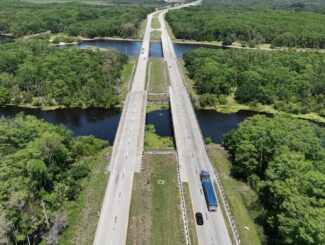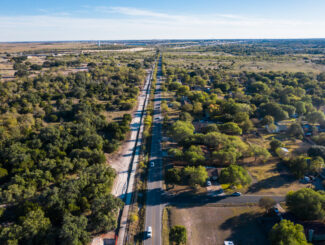January 15, 2024
By Mary Gute, Sr. Transportation Planner, WSB
As we move into 2024, there are many funding opportunities available to cities and counties in Minnesota. Here we provide the details, requirements and crucial dates for Minnesota Department of Natural Resources (MnDNR) funding programs that support recreation and trails. We have also created a compact summary of all the programs we discuss here.
Scroll down to review all of the programs or click below to jump to a specific program.
Minnesota Local Trail Connections Program
Minnesota Regional Trail Grant Program
Minnesota Federal Recreational Trail Program
Minnesota Outdoor Recreation Grant Program
Minnesota Natural and Scenic Area Grants Program
Minnesota Local Trail Connections Program
The Minnesota Department of Natural Resources (MnDNR) Local Trail Connections Program solicitation is now open and accepting applications until Friday, March 29, 2024.
Program Purpose: This program provides grants to local government units to promote relatively short trail connections between where people live and desirable locations – not to develop significant new trails.
Overview:
• Funding available will be a portion of $1.1 million from lottery proceeds
• Reimbursement of up to 75% of total eligible costs, with a 25% match of non-state funds required from the applicant
• Minimum grant award of $5,000 and a maximum grant award of $250,000
• Funds are provided on a reimbursement basis
• Acquisition projects require a perpetual easement for recreational purposes
• All facilities funded require a commitment that the trail will be open and available for use, as well as maintained for no less than 20 years
Eligible agencies: Cities, counties and townships
Eligible projects:
• Land acquisition from willing sellers in conjunction with trail development
• Construction of trail bridges or trails on public or private lands where a 20-year easement for the project can be obtained
• Development of trail linkages near homes and workplaces
• Development of permanent trailside improvements and trailhead facilities
• Features that facilitate access and use of trails by people with disabilities
• Restoration of existing trail facilities and trail bridges
• Contracted maintenance of existing recreational trails
Non-eligible projects:
• Projects within state park boundaries, state recreational areas, on state trails and elements of the Metropolitan Open Space System
• Construction of trails within federally designated wilderness areas
• Construction of ordinary sidewalks
• Planning projects that are preliminary to the construction of any trail project
• Improvements on highways or roadways
• Trails less than 10 feet in width
Funding priorities:
• Projects that provide connectivity, such as trails connecting where people live to significant public resources (e.g., historical areas, open space, parks or other trails)
• Projects expected to have relatively high usage or will meet the needs and interests of future generations and diverse communities
• Projects that provide a unique and interesting connection to the outdoors, such as trails with scenic views, unique natural and cultural features and wildlife/nature viewing
Grant timeline
• December 2023 – Grant application materials available on the DNR website
• Friday, March 29, 2024 – Grant application deadline
• Spring 2024 – Application review and selection process
• Summer 2024 – Applicants notified of results
• June 30, 2026 – All awarded project work must be completed
Minnesota Regional Trail Grant Program
The Minnesota Department of Natural Resources (MnDNR) Regional Trail Grant Program FY 2024 solicitation is now open and accepting applications until Friday, March 29, 2024.
Program Purpose: This program provides grants to local government units to promote the development of regionally significant trails outside the seven-county Twin Cities metropolitan area.
Overview:
• FY 2024 funding is approximately $1.1 million
• The minimum grant request is $5,000; the maximum grant award is $300,000
• Reimbursement up to 75% of total eligible project costs; Recipients must provide a non-state, 25% match (other state funds or grants cannot be used)
• Acquisition projects require a 20-year easement for recreational trail purposes attached to the deed
• All facilities funded through this program require a commitment that the trail will be open and available for use and maintained for no less than 20 years
Eligible applicants: Township, city and county government
Eligible projects:
• Must be outside the seven-county metropolitan area that is considered of regional or statewide significance
• Acquisition of trail facilities
• Development of trail linkages near homes and workplaces or permanent trailside improvements and trailhead facilities
• Provision of features that facilitate and use of trails for persons with disabilities
• Restoration or contracted maintenance of existing trail facilities
• Construction or restoration of trail bridges
Non-Eligible projects:
• Projects within state park boundaries, state recreational areas, on state trails and elements of the Metropolitan Open Space System
• Construction of trails within federally designated wilderness areas
• Construction of ordinary sidewalks
• Planning projects that are preliminary to the construction of any trail project
• Improvements to highways or roadways
• Trails less than 10 feet in width
Funding Priorities: Projects that develop trails of significant length, provide connectivity between homes and significant public sources, are expected to have relatively high usage and/or meet the needs and interests of future generations and diverse populations and provide unique and interesting connections to the outdoors (scenic views, cultural feature, and wildlife viewing).
Criteria for Regional or Statewide Significance (* = requirement)
Parks
• *Provide a natural setting, offer outdoor recreation facilities and primarily natural resource-based activities. The range of activities included in the park should likely attract a regional clientele.
• *Provide evidence that the park serves a regional clientele (i.e., multiple communities).
• Show that the park is significant in size. In southern Minnesota, 100 acres is significant. In northern MN, the acreage should be larger.
• Provides unique or unusual landscape features such as historic sites or other characteristics.
• Provides public natural resource-based recreational opportunities that are not available within a reasonable distance.
Trails
• *Located in a regionally desirable setting that features attractive, unusual and/or representative landscapes, important destinations or high-quality natural areas.
• *Serves as a destination, providing high-quality recreational opportunities, attracts a regional clientele (i.e., multiple communities) and generates an economic impact from outside the local area. Additionally, it is developed and maintained to include easy access, secure parking, access to drinking water and design to avoid user conflict.
• Provides at least one hour of outdoor recreation or connects to facilities that can provide one hour of recreation in total.
• Currently provides a link or will link to an existing trail of regional or statewide significance.
• Provides high-quality recreational opportunities not otherwise available within a reasonable distance.
Grant Timeline
• December 2023 – Grant application materials available on the DNR website
• March 8, 2024 – Draft application due if the applicant seeks comments by Grant Coordinator (not required)
• Friday, March 29, 2024 – Grant application deadline
• March – July 2024 – Application review and selection process
• July 2024 – Applicant notified of results
• June 30, 2026 – All awarded project work must be completed
Minnesota Federal Recreational Trail Program
The Minnesota Department of Natural Resources (MnDNR) Federal Regional Trail Program solicitation is open and accepting applications until Friday, February 29, 2024.
Program Purpose: encourage the maintenance and development of motorized, non-motorized and diversified trails by providing funding assistance for trails and trail equipment.
Overview:
• The minimum grant request is $2,500; the maximum award is $200,000
• The minimum grant request per piece of equipment is $2,500; the maximum grant award is $75,000
• Reimbursement of up to 75% of total eligible project costs; a local cash match of 25% is required – local government must pass a resolution
• Projects requiring acquisitions require a 20-year easement for recreational trail purposes attached to the deed
• All facilities funded through this program require a commitment that the trail will be open and available for use and maintained for no less than 20 years
Eligible agencies: All projects must be sponsored by a unit of government, preferably in cooperation with a local trail organization
Eligible projects:
• Construction of trails on federal (with limitations), state (with limitations), county, municipal or private lands where a 20-year easement can be obtained
• Development of urban trail linkages near homes and workplaces
• Contracted maintenance and restoration of existing recreational trails
• Development of permanent trailside and trailhead facilities (e.g., drainage, crossings, stabilization, parking, signage, controls, open-sided shelters, water and sanitary facilities)
• Features that facilitate access and use of trails by persons with disabilities
• Land acquisition from willing sellers, where value is established by a licensed and certified federal appraiser and only if twenty-year easements for recreation trail purposes are conveyed to the state
• Purchase of equipment (e.g., trail groomers)
Funding priorities:
• Accommodations for both motorized and non-motorized uses, including same-season access corridors
• Involvement of youth corps workers such as Conservation Corps Minnesota and Iowa
• For all-terrain vehicle, off-highway motorcycle, off-road 4×4 vehicle and snowmobile projects, priority will be given to trail acquisition and purchase of permanent easements, trail development and trail linkages to existing systems over equipment purchases
• Priority will be given to all horse, in-line skate, cross-country ski, hike and bicycle trail linkages and restoration to existing trail systems, necessary trail facilities, trail signage to improve safety and trail maintenance equipment
• Development of new single-track mountain bike trail system projects in areas of high user demand in partnership with the city, county and state land managers
• Projects that provide recreational opportunities in underserved areas
Non-Eligible projects:
• Condemnation of any kind
• Construction of trails in federally designated wilderness areas
• Upgrading, expanding or facilitating motorized use or access to trails used by non-motorized trail users where motorized use is prohibited or has not occurred
• Construction of ordinary sidewalks
• Planning projects that are preliminary to the construction of any trail projects
• Improvements on highways or other roadways
Grant Timeline
• December 2023 – Grant application materials made available
• February 3, 2023 – Draft application due if the applicant seeks comments by Grant Coordinator (not required)
• Friday, February 29, 2024 – Grant application deadline
• Spring 2024 – Application review and selection process
• Summer 2024 – Applicant notified of results
• June – November 2024 – Grantee must work on the required environmental documentation items
• October/November 2024 – Grantees who have received final DNR approval of their required documentation will have their contract written after FHWA approval
• June 30, 2026 – All awarded project work must be completed
Minnesota Outdoor Recreation Grant Program
The Minnesota Department of Natural Resources (MnDNR) Outdoor Recreation Grant FY 2024 solicitation is now open and accepting applications until Monday, April 1, 2024.
Program purpose: This program provides funds to assist local governments in acquiring parkland and developing or redeveloping outdoor recreation facilities in local and community parks throughout the state.
Overview:
All land acquired or improved with assistance from this grant program must be retained and operated solely for outdoor recreation into perpetuity. Parks and recreation areas must be operated and maintained for public outdoor recreation purposes into perpetuity.
• Reimbursement of up to 50% of total eligible costs, with a 50% match required
• Applicants providing a minimum of 20% match from their own resources and/or have the match committed at time of application will receive additional consideration
• Minimum grant award of $10,000 and a maximum grant award of $350,000
• Funds are provided on a reimbursement basis
Eligible applicants: Cities, counties, and townships may apply.
Eligible projects:
• Acquisition of parklands as well as developing or redeveloping outdoor recreation facilities in local and community parks throughout the state. NOTE: Metro Regional Parks and Greater MN Regional Parks are not eligible for funding under this program.
Non-eligible projects:
• Construction of a facility not owned by the applicant
• Acquisition of land already in public ownership
• Facilities unavailable for general public use
• Expenses occurring outside the dates of the grant contract
• Administrative expenses (indirect costs, contingency allowances, archeological surveys, legal fees)
• Design and engineering fees over 10% of the total construction cost
• Construction of indoor recreational facilities (ice arenas, enclosed swimming pools)
• Decorative fountains, statues, and plaques
• Sewer to individual campsites
• Historic signage
Funding priorities:
Most (60 percent) of the review and selection process will focus on priorities outlined in the 2020-2024 State Comprehensive Outdoor Recreation Plan (SCORP). Three strategic directions in SCORP 2020-2024 include:
– How does the project connect people to the outdoors
– Does the project acquire land and/or create opportunities?
– Does the project take care of what we have?
Additional review components will assess the design of the proposed project and the existing park, cost vs. benefit, health and safety, and environmental intrusions.
Grant timeline
• December 2023 – Grant application materials available on the DNR website
• Monday, April 1, 2024 – Grant application deadline
• Spring 2024 – Application review and selection process
• Summer 2024 – Applicant notified of results
• Fall 2024 – Awarded projects must begin
• June 30, 2026 – All awarded project work must be completed
Minnesota Natural and Scenic Area Grants Program
The Minnesota Department of Natural Resources (MnDNR) Natural and Scenic Area Program solicitation is now open and accepting applications until Monday, April 1, 2024.
Program Purpose: This program is to increase, protect and enhance natural scenic areas by assisting local governments and school districts in acquiring fee title acquisition and permanent easement acquisition.
Overview:
• There are two sources of funding: federal and states funds. Federal funding should be at least $2.5 million. State funding is not yet known
• Reimbursement of up to 50% of total eligible costs with a 50% match required
• Minimum grant award of $10,000 and a maximum grant award of $500,000 (for total project cost of $1M)
• Funds are provided on a reimbursement basis
Eligible agencies: Cities, counties, townships and school districts
Eligible projects:
• Fee title acquisition of natural or scenic areas
• Permanent easement acquisition of natural or scenic areas
• Minimal betterment activities are eligible as part of an acquisition project, including site surveying, boundary signage and immediate measures needed to stabilize the site and ensure the safety of users
• Active restoration efforts are eligible as part of an acquisition project that would significantly improve the site’s natural resource values
Funding priorities:
The proposed project is assessed for consistency with Minnesota’s 2020-2024 State Comprehensive Outdoor Recreation Plan (SCORP), as well as:
• Natural Resource Qualities – approximately 45%
• Scenic Qualities – approximately 25%
• Other Review Components – approximately 30%: “Other” includes adjacent lands, educational and scientific values, open space and historical/cultural values, cost vs. benefit, match and local government commitment.
Non-eligible projects:
• Acquisition of land already in public ownership
• Any expenditure that occurs outside the dates of the grant contract
• Administrative expenses, contingency allowances, archeological surveys and legal fees
• Incidental costs of land acquisition (e.g., appraisals, closing costs and legal fees)
• Recreational development
• Operations and maintenance
Grant timeline
• December 2023 – Grant application materials available on the DNR website
• Monday, April 1, 2024 – Grant application deadline
• Spring 2024 – Application review and selection process
• Summer 2024 – Applicant notified of results
• June 30, 2026 – All awarded project work must be completed
WSB has many qualified experts on staff to support your organization during the application process and throughout the life cycle of your projects. If you are interested in learning more about any of the programs listed here or are looking for some expert assistance in submitting applications contact us to learn how we can help.
Mary has 20 years of progressively complex transportation planning and project management experience, gained from working on a variety of transportation projects for modes including roads/bridge, transit, and trails. Several these projects have included environmental documentation considerations – either pre-NEPA, or through NEPA and/or MEPA processes.
[email protected] | 612.741.7055


